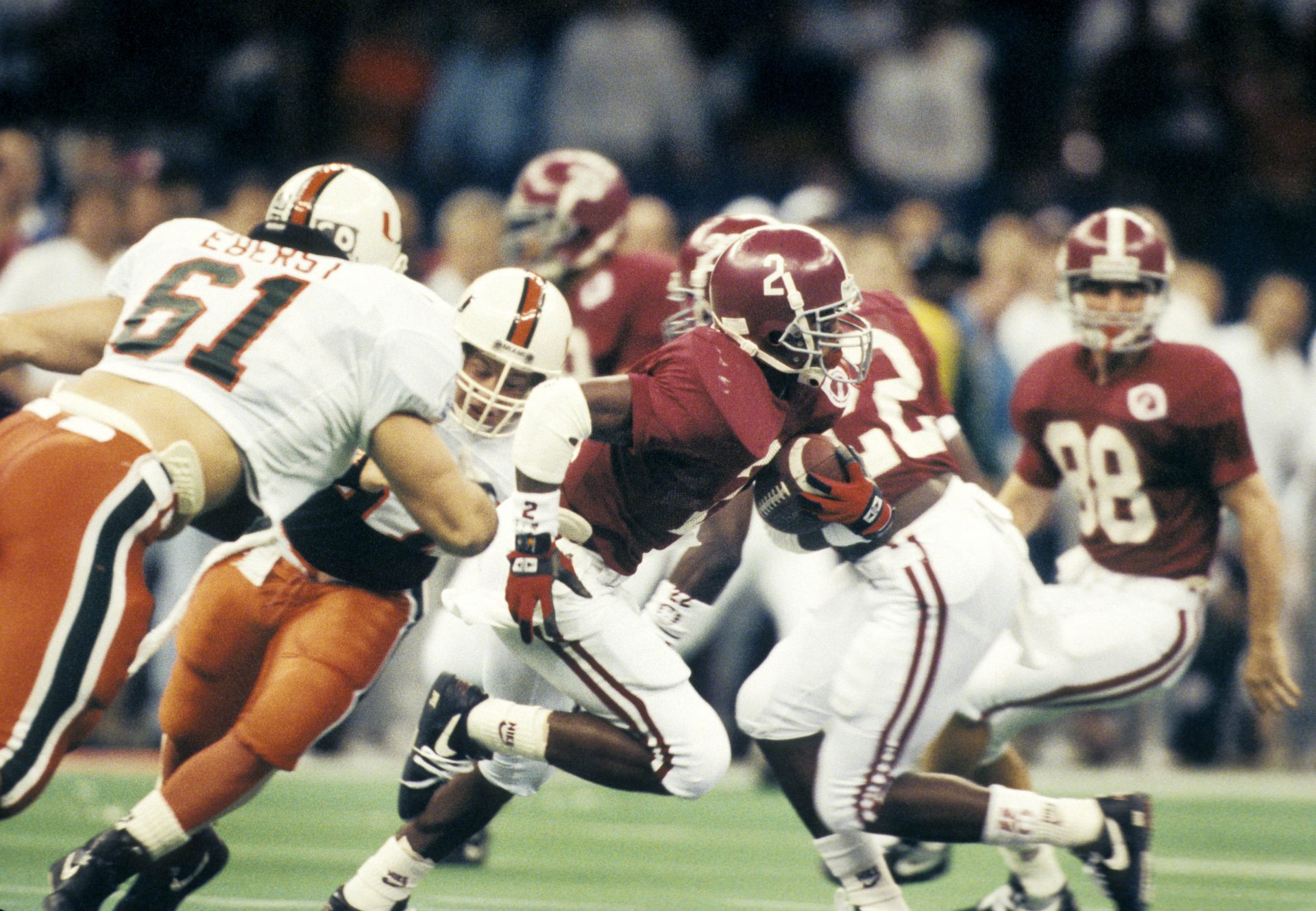Before Dabo Swinney became the face of Clemson football and a two-time national championship-winning coach, he was just another scrappy underdog. You’ve seen him sprint down the hill at Death Valley and fire up his players with emotional speeches—but once upon a time, he was sprinting down the field as a little-known wide receiver at Alabama.
Yes, that is right—Coach Swinney didn’t just talk about it. He walked on, played tough, and even won a national title as a player before he ever grasped a clipboard.

Crimson Beginnings: The Walk-On Who Wowed at Alabama
Dabo Swinney’s football-playing career began in Pelham, Alabama, where he was born on Nov. 20, 1969, as William Christopher Swinney. “Dabo” was a nickname his big brother gave him when he was a toddler that stuck—a typically offbeat nickname for a guy who would go on to break the mold in college football.
In 1989, Swinney joined the University of Alabama’s football team as a wide receiver. Alabama was already a college football powerhouse when he arrived, and walk-ons were not necessarily handed things on a silver platter.
But Dabo brought some value to the table: grit, determination, and an unstoppable motor. It didn’t take him long to catch the eye of the coaches and his teammates and earn himself a scholarship in 1990.
While he didn’t rack up flashy statistics—only seven receptions for 81 yards in his career—Swinney proved himself a good teammate and locker room presence.
His standout moment was being part of the 1992 Alabama Crimson Tide squad that went undefeated (13-0) and concluded the year by defeating the powerhouse Miami Hurricanes 34-13 in the 1993 Sugar Bowl to claim the national championship under head coach Gene Stallings.
That win would be a formative moment in Dabo’s life. “Being on that team taught me what championship culture is like,” he once said. “It wasn’t about personal talent—it was about team, toughness, and belief.”
The Coaching Climb: From Grad Assistant to Clemson’s Kingpin
Following his graduation in business administration and commerce from Alabama in 1993, Swinney stayed behind in Tuscaloosa, where he became a graduate assistant on the coaching staff and, by 1996, a full-time receivers coach. He was in that role until 2001, when a coaching shakeup left him out of football altogether.
Swinney spent the next two years in commercial real estate in Alabama—an odd detour for a coaching legend to embark on. But then, in 2003, the call came. His old Alabama teammate Tommy Bowden brought him to Clemson University as a wide receivers coach. That was one of the best decisions in Clemson history.
Flash forward to midseason in October 2008, and Bowden resigned. Swinney was the surprise interim head coach hire. Everyone wondered if a guy without any coordinator experience was up for the task. But Swinney led the team to a 4–2 finish, earned the full-time job, and set about building a football behemoth.
It’s been a rocket ride since. Clemson has:
- Won two national championships (2016 and 2018)
- Made six College Football Playoff appearances
- Developed NFL stars like Deshaun Watson, Trevor Lawrence, and Travis Etienne
- Built a family-environment culture that puts trust, growth, and learning first
He’s the only college football coach to have guided a program to six straight Playoff appearances, and he did it maintaining the very same underdog mentality he had strutting around on the football team as an undergrad.
Why Dabo’s Playing Days Still Matter Today
Dabo’s playing experience is not trivia—it’s the secret to who he is as a coach. He’s been the guy fighting for a roster position. He’s been the walk-on, the benchwarmer, and the scout-team hero. That is what fuels his ability to connect with players from all walks of life.
“I never forget what it’s like to be at the bottom of the depth chart,” he once told The Athletic. “That’s why I believe in every kid who comes through our door. They’re more than a rating or a stat line.”
Swinney’s journey from walk-on to national champ is a blueprint for the culture of Clemson under his leadership. He values effort over pedigree, instills the power of belief, and gives backup players a chance to be seen, like he gave himself all those years back in Tuscaloosa.
His own biography has been a top recruiting attraction. Players and parents understand they’re getting a coach who has been through the trenches and knows what it takes not just to play, but to coach.
Did Dabo Swinney play college football? Yes—and in Dabo fashion, he took an unremarkable playing career and made it a cornerstone of his coaching identity.
College Sports Network has you covered with the latest news, analysis, insights, and trending stories in college football, men’s college basketball, women’s college basketball, and college baseball!

